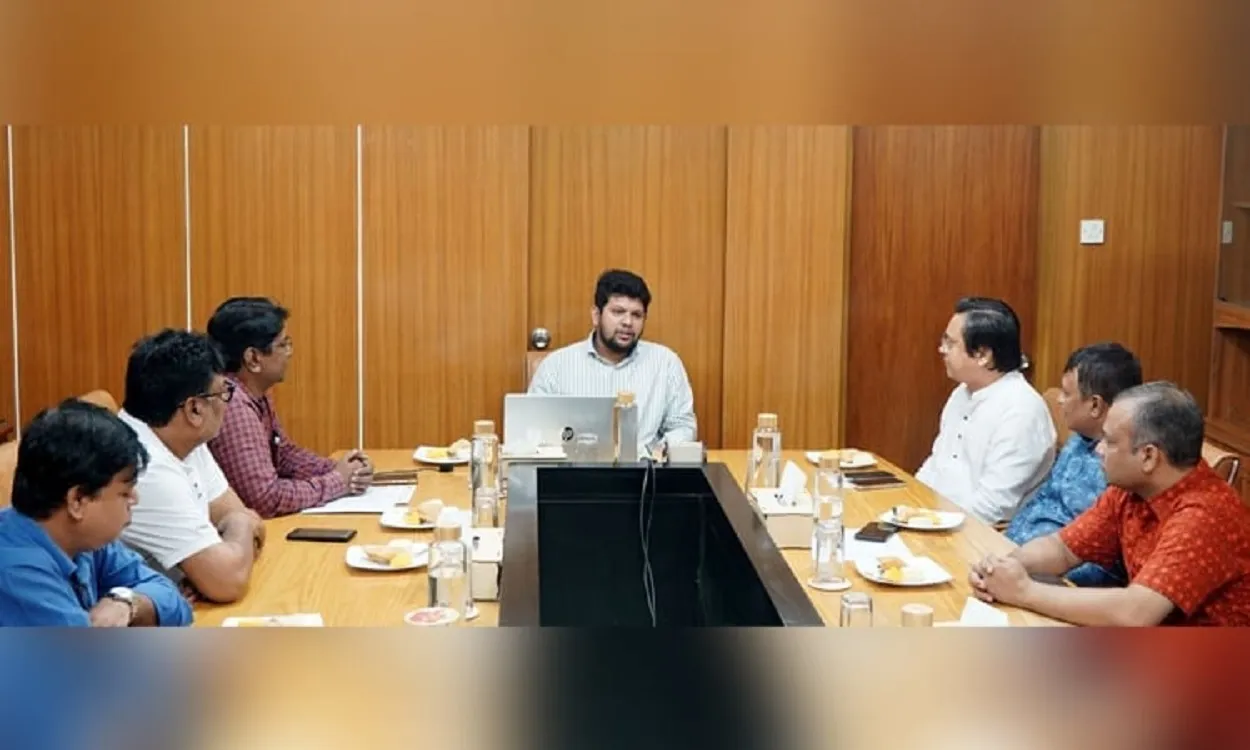


The executive committee of the Bangladesh Secretariat Reporters’ Forum (BSRF) recently held a crucial meeting with Information and Broadcasting Adviser Md Mahfuj Alam at his ministry to press for two key demands concerning accredited journalists working at the Secretariat beat.
During the meeting, BSRF President Masudul Hque highlighted the prolonged delay in implementing a prior decision by the Ministry of Public Administration. This decision was intended to provide healthcare services to accredited journalists via the Secretariat clinic. Masudul Hque noted that although a formal letter was dispatched to the Department of Health Services on December 22, 2024, requesting necessary measures, the facility is yet to be introduced. He sought the Adviser’s direct cooperation to expedite the introduction of this essential service.
In addition to the healthcare demand, the BSRF also requested that accredited journalists be allowed entry into the Secretariat through Gate No. 5, providing an alternative access point alongside the currently designated Gate No. 1.
In response to the proposals, Adviser Md. Mahfuj Alam offered an assurance that the demands raised by the BSRF—specifically relating to healthcare and dual-gate access—would be sincerely considered.
Other BSRF committee members present at the meeting included Vice-President Mynul Hossain Pinnu and General Secretary Ubaidullah Badol.
While the BSRF requested Gate No. 5 entry for convenience, the access issue has taken on a heightened urgency due to recent security measures. Following the major fire incident at Secretariat Building 7 in late December 2024, the government revoked all existing journalist accreditation cards due to security concerns.
In response to immediate appeals by the BSRF and other media bodies, the government subsequently allowed journalists to enter the Secretariat using temporary passes.
This temporary arrangement underscores the continuing need for clear, multi-point access, making the BSRF’s request for permanent access via Gate No. 5 particularly relevant in the current, tighter security climate.
Comment